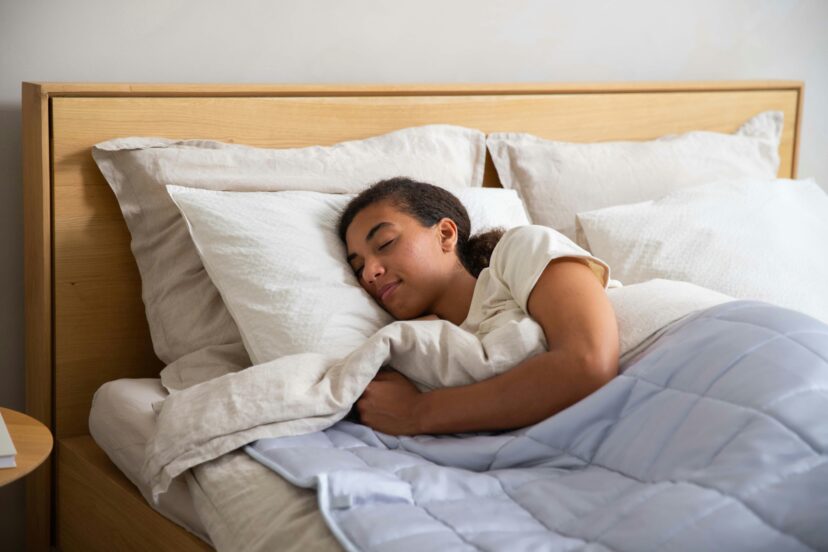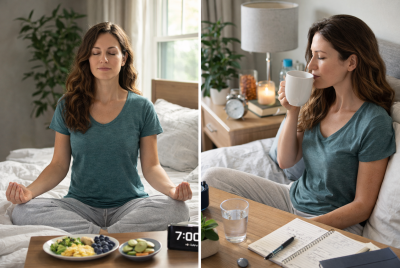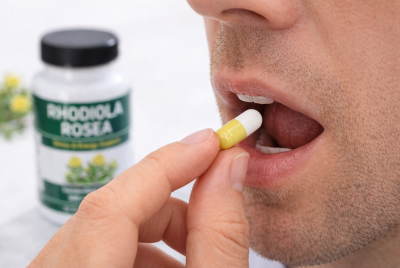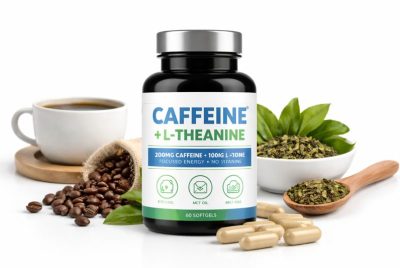Nootropics for Sleep: Natural Ways to Improve Your Rest
We may earn a commission for purchases made using our links. Please see our disclosure for more details.
Tossing and turning all night can leave you drained, unfocused, and moody the next day — and over time, poor sleep chips away at your overall health. It’s frustrating when you do everything “right” yet still wake up feeling exhausted. That’s why so many people now trust nootropics for sleep as a natural, gentle way to calm a restless mind, ease stress, and finally get the rest they crave. Unlike harsh sleep meds, the right nootropic helps you relax deeply and wake up refreshed — no groggy after-effects. Let’s look at how they work and which ones are truly worth trying.
Understanding How Nootropics Work for Sleep
So, what actually happens if you take a nootropic for sleep? Certain nootropics induce relaxation by altering the brain chemicals that regulate stress and anxiety. For example, L-Theanine, which is naturally contained in green tea, enhances alpha brain waves, which are associated with a calm, attentive mind.
Others, such as magnesium glycinate, aid to relax tight muscles and balance melatonin levels. Adaptogens, such as Ashwagandha, operate by balancing cortisol (the stress hormone), allowing your body to transition from “fight or flight” to “rest and digest.”
Unlike sedatives, these supplements do not cause you to pass out. Instead, they offer the ideal conditions for your mind and body to naturally drift off—which is why they are so enticing.
Who Should Consider Nootropics for Sleep?
Let’s be clear: nootropics for sleep aren’t magic pills. They’re best for people who:
- Have mild to moderate trouble falling asleep
- Struggle with racing thoughts at bedtime
- Experience stress-related insomnia
- Want to avoid strong sleep medications
If you have chronic insomnia or a medical condition that impacts sleep, it’s wise to talk to your doctor before trying anything new. But for everyday sleep struggles? Nootropics might be your new secret weapon.
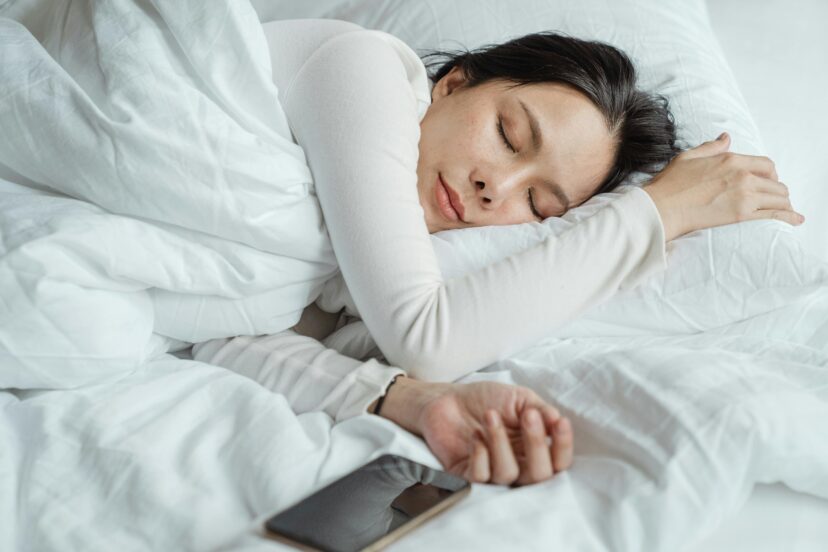
Top 5 Best Nootropics for Sleep
Not all nootropics work the same way. Some are better for calming an anxious mind, while others help your body release melatonin naturally. Here are five trusted options you can easily find on Amazon:
1. L-Theanine
Why people love it: L-Theanine, an amino acid naturally present in green tea, is well-known for its calming effects. It helps increase dopamine, GABA, and serotonin — all of which promote a relaxed state. Studies show it can help you fall asleep faster and improve sleep quality without feeling sedated.
2. Magnesium Glycinate
Why people love it: Magnesium is involved in over 300 processes in the body, but its ability to calm the nervous system makes it a standout for sleep. Magnesium glycinate is gentle on your stomach and well-absorbed. Many people report fewer nighttime awakenings and more restful sleep.
3. Ashwagandha
Why people love it: Ashwagandha is a powerful adaptogen that helps manage cortisol. Adaptogens are plant-based compounds that support your body’s ability to handle stress and maintain balance — a big help when it comes to sleeping soundly. Lower cortisol levels at night mean your body stays in a relaxed state instead of staying wired. It’s been shown to help with stress-induced insomnia and can be taken daily for long-term results.
4. Melatonin Blends with Herbs
Why people love it: Melatonin is your body’s natural sleep hormone. Sometimes, travel, stress, or screen time throws your melatonin levels off track. Supplements that combine melatonin with calming herbs like chamomile, valerian root, or lemon balm can boost your sleep cycle gently.
5. GABA Supplements
Why people love it: GABA (gamma-aminobutyric acid) is a neurotransmitter that blocks excessive brain activity, helping you quiet mental chatter. If your mind races when your head hits the pillow, GABA might be worth a try.
Are These Nootropics Safe?
You might be wondering if nootropics for sleep are genuinely effective and safe. Recent evidence says yes — when used responsibly. For example, a systematic review on L-Theanine and sleep outcomes concluded that L-Theanine can significantly improve sleep quality and help people fall asleep faster without causing next-day grogginess.
Likewise, this comprehensive review on Ashwagandha and sleep highlights Ashwagandha’s proven adaptogenic benefits, showing it may reduce stress-related insomnia and enhance overall sleep quality. These studies show that nootropics, when chosen wisely and taken as directed, can be a safe and gentle part of your bedtime routine.
How to Use Nootropics for Better Sleep Results
Ready to give these a try? Here are a few simple pointers to get the most out of your nootropics:
Take them 30–60 minutes before your bedtime.
Be consistent — some adaptogens like Ashwagandha work best after a few weeks.
Don’t mix multiple nootropics unless the blend is formulated that way.
Avoid alcohol or caffeine in the evening to help them work better.
Talk to your doctor if you’re taking other medications or have underlying conditions.
Lifestyle Tips to Boost Sleep Naturally
While nootropics for sleep are a great tool, they work even better when you pair them with healthy sleep habits. Small changes make a huge difference:
- Set a wind-down routine. Reading, light stretching, or a warm bath tells your brain it’s time to sleep.
- Make your bedroom a screen-free zone; the blue light from devices can fool your brain into thinking it’s still daytime.
- Create a cool, dark sleep space. Your bedroom should feel like a cozy cave.
- Get natural light during the day. Sunlight helps regulate your circadian rhythm.
- Limit heavy meals before bed. A light snack is fine, but rich foods can disrupt sleep.
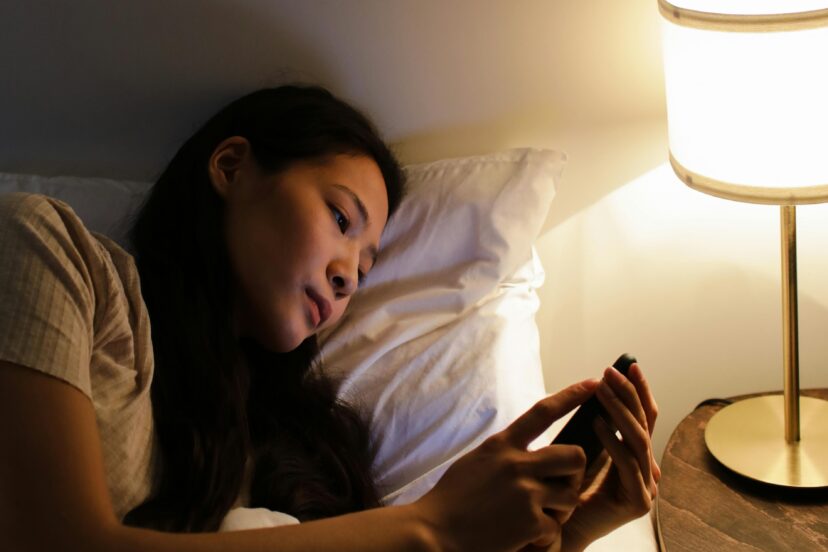
Final Thoughts
At the end of the day, sleep is your body’s best repair system. And if you’re tired of restless nights, nootropics for sleep might be the gentle nudge your mind and body need.
They won’t “knock you out” like prescription pills, but they can help you feel calmer, fall asleep faster, and wake up ready to face the day. Just remember: quality sleep is a package deal. Pair your nootropics with healthy habits, and you’ll feel the difference.
Sweet dreams!
FAQs
1. Can I take nootropics for sleep every night?
Most natural sleep nootropics like magnesium, L-Theanine, or Ashwagandha can be taken daily, but always follow dosage guidelines and talk to your doctor if you’re unsure.
2. Will nootropics make me feel groggy the next day?
No — when used correctly, they won’t leave you with a “sleep hangover.” They help you get restful sleep naturally.
3. How long does it take for nootropics to work for sleep?
Supplements such as L-Theanine or melatonin often start working the first night you take them. Others, like adaptogens, work best when taken consistently over a few weeks.
4. Can you safely mix nootropics with other dietary supplements?
It depends. Some blends are designed for combined effects, but always read labels to avoid overlap and talk to your healthcare provider.
5. Where can I find quality nootropics for sleep?
Amazon has many trusted brands. Look for third-party testing, read reviews, and buy from reputable sellers to get the best quality.

